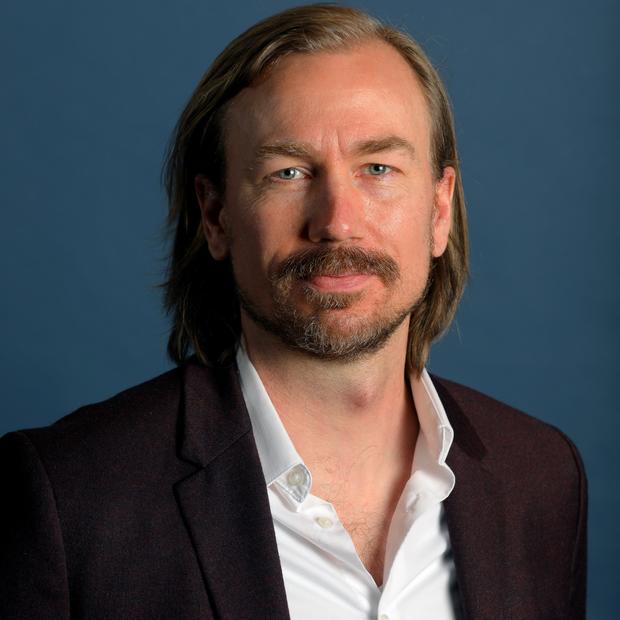The key, I knew, was to do what you can with what you have, but to set a lofty goal and have a plan to get there. I knew not to become fixated on what I wished we were doing and to never become cynical about the possibility of reaching that goal. I learned to be OK with imperfection and have patience. And I knew that we needed to celebrate even the smallest achievements, that those achievements would mount. Momentum would become our greatest resource.
Tune in to our latest Crosscut Talks episode: How COVID-19 is disrupting our food system
Before we had momentum, though, we had another resource: the Crosscut Festival. The 2019 edition of our annual ideas festival had left us with a trove of recordings of interviews with political leaders, national journalists, authors and academics. So I set aside a small chunk of my budget and drafted podcast producer Sara Bernard for just a few hours a week. We took the audio from the live interviews and we packaged them, with a table-setting introduction and some sound design, as a new podcast called Crosscut Talks.
The first season of Crosscut Talks was not an ideal podcast experience. Many of the speakers were household names and often the conversations were fascinating, but the quality of the live audio was uneven and the primary audience for those conversations was those at the event, not a podcast listener accustomed to more intimate conversations.
But every week we put a new episode out into the world. Slowly we began attracting more listeners. I celebrated every milestone I could identify: 100 downloads in a week, 200, 300.
It was modest, but we were gaining momentum. My bosses noticed and over the following months they invested more of the company’s time and energy into the podcast vision. We rebranded our live events series as Crosscut Talks Live (a little awkward because there was not a nonlive version of the podcast). They encouraged me to continue developing Crosscut's podcast arm and provided the newsroom with additional resources to do so. We started cooking up ideas for serial podcasts where we knew Crosscut's commitment to telling the deeper story would shine.
Our podcast producer, Sara Bernard, was in the middle of developing the first of those podcasts when the unexpected happened: coronavirus. When the stay-at-home order came down, everything came to a screeching halt. The logistics of producing that podcast proved untenable and the subject felt irrelevant during a national crisis without a clear end date. Then came the cancellation of this year's Crosscut Festival, scheduled for the beginning of May, and suddenly we were facing the prospect of having zero talks for Crosscut Talks Season 2.
We were quickly losing that key ingredient: momentum. The problem was the same as many editors have faced in the last couple of decades: How can we keep moving forward as the ground shifts beneath our feet?
Once again, the key was to not become fixated on what we wish we were doing, but to do what we could.
We leaned into the crisis and decided to quickly develop a new podcast that tapped in to the work that our newsroom was doing on the COVID-19 pandemic. Within a few weeks, Sara produced the first episode of This Changes Everything, our weekly look at the cultural, political and economic impacts of the pandemic.
Start with the first episode of This Changes Everything: Grappling with a new kind of anxiety in the early days of COVID-19
For Crosscut Talks, we took another tack. Instead of cutting loose the speakers we had booked for this year’s Crosscut Festival, we asked if they would want to be a guest on our podcast. And just like that, Crosscut Talks became a real podcast, featuring intimate conversations with the people who shape our world. I've stepped into the role of host and now, every week, I'm ducking into my home studio, aka the basement closet, to discuss the big issues that impact us all with guests from both Washingtons and beyond.
So far we have had former Republican strategist Rick Wilson talking about his plan to unseat Trump, Indivisible co-founder Leah Greenberg detailing the ways the pandemic has impacted movement politics and journalist Leah Douglas taking us inside the debate over the reopening of the nation's meat-packing plants
So now, one year after having zero podcasts, Crosscut has two that showcase our journalism. There are still plenty of imperfections and my goals for Crosscut Podcasts are much loftier, but we are closer to them than we were yesterday and we've got momentum.
Subscribe to our Crosscut Talks and This Changes Everything podcasts on Spotify, Apple Podcast, Google Play, Overcast, Podbean, and Stitcher.





